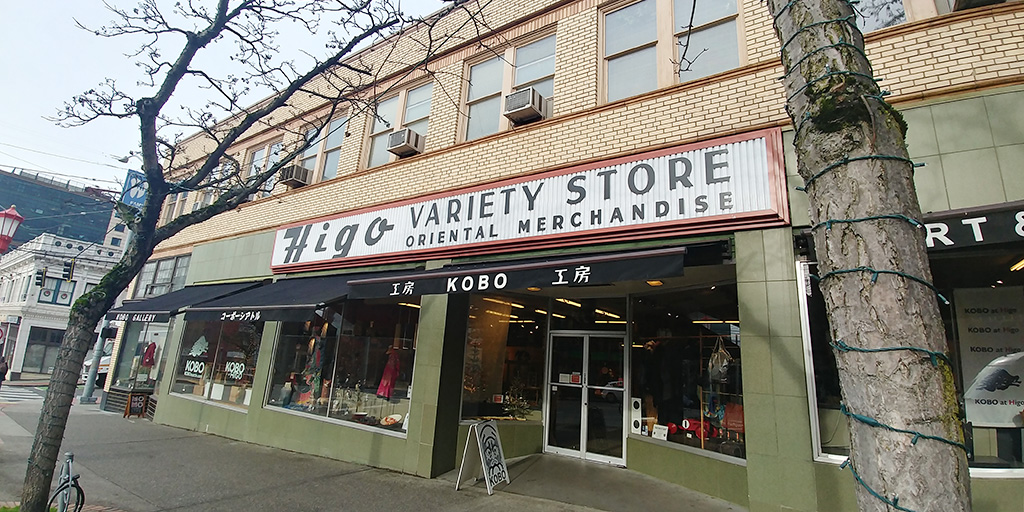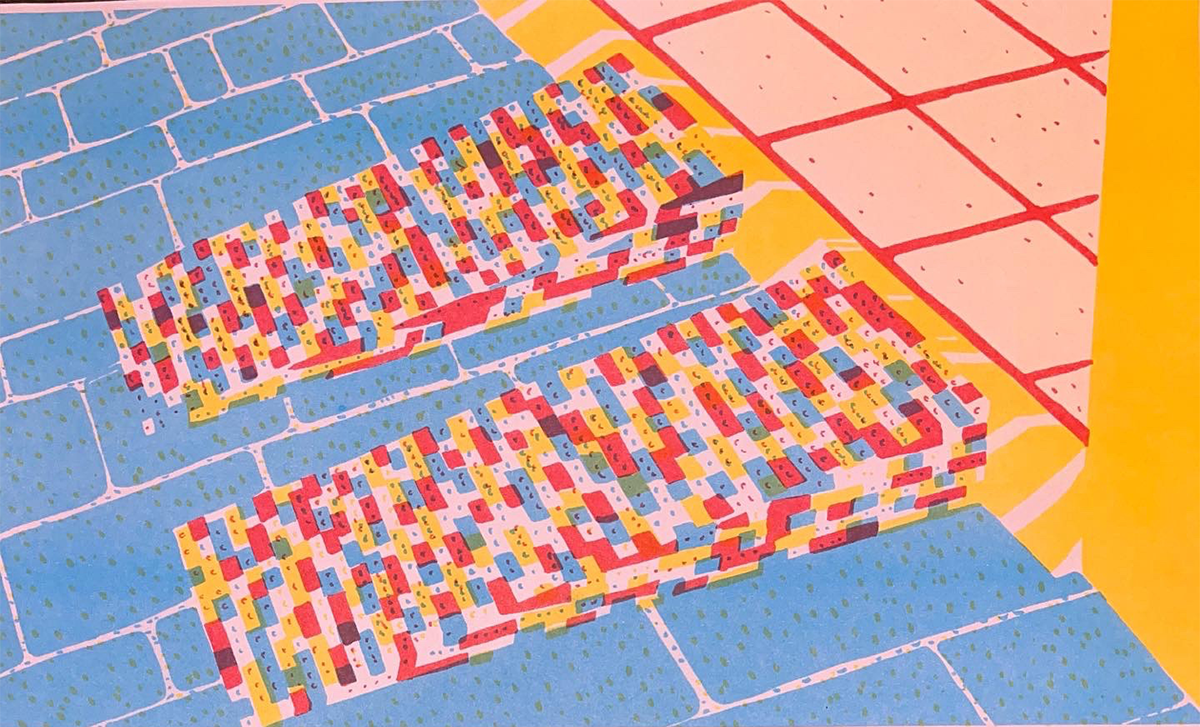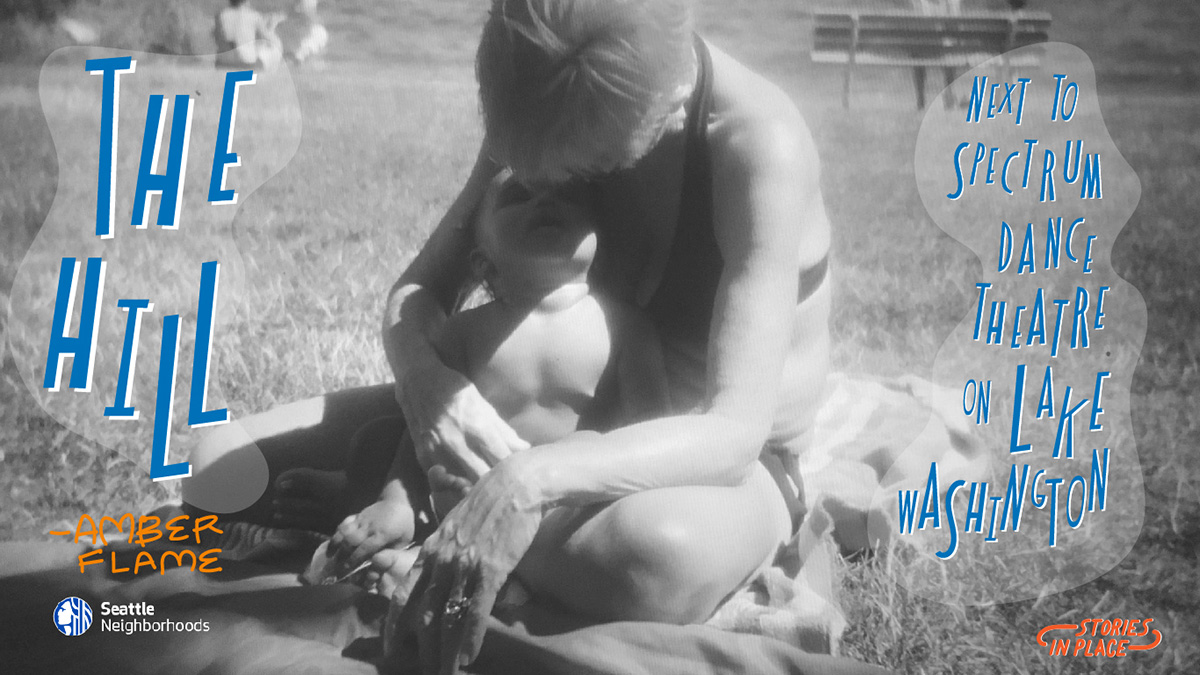
Although historic preservation is often perceived as merely a matter of protecting buildings, it is also about honoring Seattle’s history, its myriad cultures, and the people whose lives are entwined with historic districts and buildings. It is no secret that Seattle’s rapid growth and redevelopment has put pressure on communities across the city. This three-part series examines how community members are working within the International Special Review District (ISRD), one of City’s eight historic districts, to preserve the buildings and the stories that infuse them.
Concern for the community and a commitment to its history drives the work Paul Murakami, whose family owns the Jackson Building in the Chinatown International District. Built at Sixth and Jackson by Murakami’s great-uncle Sanzo in 1932, the two-story, brick Jackson Building was home to Higo – the variety store that he opened in 1909 and which his widow and his children operated until its closure in 2003 – and remains an important part of Seattle’s Nihonmachi (Japantown). Rent rolls from the Thirties and Forties record the Japanese-American professionals and businesses that occupied the building’s second floor office space and serve as a valuable reminder of the thriving community that was devastated by the incarceration of Japanese-Americans during the Second World War.

Paul Murakami in front of the Jackson Bldg (photo courtesy of The North American Post)
“Seattle has a very rich history,” said Murakami. “The Japanese-Americans here had a tough time during World War II. Most families, like my father’s, lost everything during the war. My mother’s family lost everything. The only reason that the Jackson Building was preserved was because the Blumenthals watched over it. This is a physical presence that I need to preserve.” Immigrants themselves, pawnbrokers Julius Blumenthal and his half-brother Maurice Zimmer were tenants of the Murakami family. They paid bills and maintained the Jackson Building for the Murakamis during their incarceration in the wake of Executive Order 9066 – the order signed in 1942 that paved the way for Japanese-Americans along the west coast of the United States to be forcibly relocated and incarcerated in concentration camps.
“My first goal was to preserve the building. I thought at least I’ve got to preserve the infrastructure and the building itself.”
After his aunt Masa’s retirement and Higo’s closure, Murakami took over the management of the building. “My first goal was to preserve the building. I thought at least I’ve got to preserve the infrastructure and the building itself,” Murakami recalled. “The electrical, the plumbing, the roof, and the boiler all needed work. It was a major undertaking.” Since the Jackson Building is located within the part of the Chinatown International District that is subject to the International Special Review District (ISRD) design guidelines and land use standards, Murakami’s efforts to preserve the building and with it the history of his family and Seattle’s Nihonmachi meant that he had to work with the ISRD Board. “It was cumbersome,” Murakami said. “But I think we all have to be on a level playing field and the ISRD does that. There are some things that are hard for them to control, like graffiti, but the ISRD has never turned us down.”
 While investing in the Jackson Building’s infrastructure secured the building’s longevity, Murakami knew he needed to find tenants to occupy the store fronts. While on a trip to San Francisco with his brother Craig to meet with potential anchor tenants, Murakami received a call from a friend who told him that Binko Chiong-Bisbee and her husband, John, the owners of KOBO – a local artisan gallery featuring Japanese and Northwest fine crafts – were looking for a new space. “They wanted to be the anchor tenant,” Murakami said. “They wanted to preserve the history of Higo, they wanted to preserve part of the store as it used to look like. So, the first brick fell into place. From there, Lei Ann Shiramizu – who had an office upstairs – and her husband opened Momo and we had two really solid stores and it’s worked out great.”
While investing in the Jackson Building’s infrastructure secured the building’s longevity, Murakami knew he needed to find tenants to occupy the store fronts. While on a trip to San Francisco with his brother Craig to meet with potential anchor tenants, Murakami received a call from a friend who told him that Binko Chiong-Bisbee and her husband, John, the owners of KOBO – a local artisan gallery featuring Japanese and Northwest fine crafts – were looking for a new space. “They wanted to be the anchor tenant,” Murakami said. “They wanted to preserve the history of Higo, they wanted to preserve part of the store as it used to look like. So, the first brick fell into place. From there, Lei Ann Shiramizu – who had an office upstairs – and her husband opened Momo and we had two really solid stores and it’s worked out great.”
Making sure that new development is thoughtful is one area where Murakami believes the ISRD can help. “I recognize that there will be changes. We need retail space and market-rate housing to support our local businesses, but there has to be balance,” Murakami said. In particular, as new development is being considered, Murakami hopes that ISRD board can serve as a bridge between developers and the communities of the Chinatown International District to make sure that that their needs are being taken into account.
“I think that history [of the Incarceration] is so painful, but I think that’s one reason why I am so passionate about preserving it.”
The importance of finding the right balance drives Murakami’s work both at the Jackson building and in the Japanese-American community. “I think that history [of the Incarceration] is so painful, but I think that’s one reason why I am so passionate about preserving it. It was a vibrant community at one time,” he said. “Most of the people who lived here left and a lot of them didn’t return, evidenced by the personal effects left by families and businesses downstairs [in the Panama Hotel]. I don’t want that [history] to ever get lost.”


